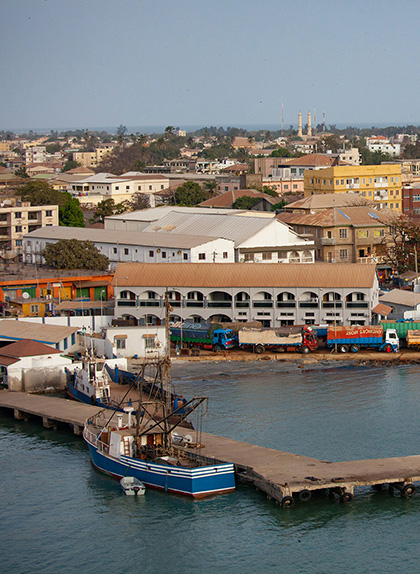Evacuations from High-Risk Locations Call +44 (0)1202 308810 or Contact Us →

State of Emergency Declared in The Gambia – Travel Risk Analysis & Advice
2 Feb 2017
A state of emergency was declared by President Jammeh in The Gambia, who continues to refute the December 2016 election result. Tourists and expatriates have begun to leave the country as a precaution.Gambian Members of Parliament have ruled President Jammeh may remain in office for an additional three months.
Key Points
- A state of emergency was declared by President Jammeh, who continues to refute the December 2016 election result.
- Tourists and expatriates have begun to leave the country as a precaution.
- Gambian Members of Parliament have ruled President Jammeh may remain in office for an additional three months.
Situation Summary
Political: A political crisis is currently developing in The Gambia. The presidential election result, declared in December 2016, is disputed by the outgoing President Jammeh. The inauguration ceremony for the incoming president, opposition leader Mr Adama Barrow, was due to be held on Thursday 19 January 2017. It is doubtful this event will continue as planned due to the state of emergency declared by President Jammeh. Furthermore, the National Assembly in The Gambia has declared Jammeh may remain in office an additional three months, to enable the Supreme Court to review his claims. However, it is estimated the Supreme Court will only be able to convene in May due to a current shortage in judges. The Gambia is therefore on the brink of experiencing a power vacuum. So far, President Jammeh’s actions have indicated his intention is to remain in office, regardless of the election result.
Solace Global Risk Management Comment
The electoral victory of Mr Adama Barrow came as a surprise to many, along with President Jammeh’s early capitulation. The reversal of this decision by the long-serving dictator, has developed into a political crisis and escalated the potential for civil unrest across the country. President Jammeh refuses to leave executive office based on the claims his supporters were turned away from polling stations and errors were conducted by the Electoral Commission. Although some cabinet ministers have resigned from their posts in criticism towards Jammeh, he continues to maintain a strong control of state apparatus’ as well as the support of the army chief. It is important to note the full extent of the military’s support for Jammeh’s continued presidency is currently uncertain. It has been proposed that Jammeh’s decision to stay in office is due to his concerns of being prosecuted outside The Gambia for crimes committed whilst in office.
As The Gambia is a small country, this political crisis requires the support and aid of neighbouring West African countries to resolve it. Judges on the Supreme Court panel have been hired from Nigeria and Sierra Leone. Due to schedule conflicts, the earliest possible date they are available to view the case is May 2017, with some suggestions it could be as late as November. The prospect of severe delays in resolving this issue has led to the West African regional bloc encouraging President Jammeh to step down. A military intervention is currently being considered by Senegal and Nigeria; Nigeria has already dispatched a warship to the coast of The Gambia. These actions indicate that should Mr Jammeh remain in office, his presidency would no longer be regarded as legitimate by West African neighbours. There is some speculation Mr Barrow may still be sworn in as President of The Gambia on Thursday, however the ceremony will be conducted in the Gambian Embassy in Dakar, Senegal.
The potential for civil unrest in response to the political crisis is high, particularly in the capital city Banjul. There is currently a strong security presence at all checkpoints in the city. Jammeh’s declaration of a state of emergency has led to many people fleeing the country or to rural areas. Tourists as well as expatriates have been evacuated from the country, with tour operators scheduling additional flights in order to meet the demand. Although Mr Barrow has encouraged calm, reports indicate some Gambians are stocking up on food, water and supplies.
SECURITY ADVICE
PoliticalHighTravellers should be aware there is an increased security presence in Gambia, especially in the capital Banjul. President Jammeh has already stated that no protests are to be permitted. Increased checkpoints have already been noted as well as security patrols. If travelling within the country, it is vital that travellers adhere fully to the instructions of security forces; opposition may result in a forceful response.
Solace Global travel safety recommendation is that post-election protests should be avoided. It is likely police will use forceful measures against demonstrators given recent history and the warnings issued by Jammeh during the election campaign. Political gatherings may initially seem peaceful but can escalate quickly into violence. Solace Global travel security advice is that travellers maintain a low profile in the short-term and monitor local events. If currently in The Gambia, it is recommended to contact the tour operator or airline for advice on rebooking return flights.
Solace Global Travel Risk Management would advise clients to employ enhanced security measures when visiting The Gambia airport meet and greet security services and a security driver for the length of a visit should be a minimum security precaution. Solace Global travel safety advice is that travellers may also wish to employ executive protection.
Solace Global are security experts and operate global security services including journey management, Â in-country meet and greet and close protection, crisis management and emergency evacuations. Regardless of destination we offer global security advice and travel risk technology, providing travel tracking with SOS functionality in case of an emergency.